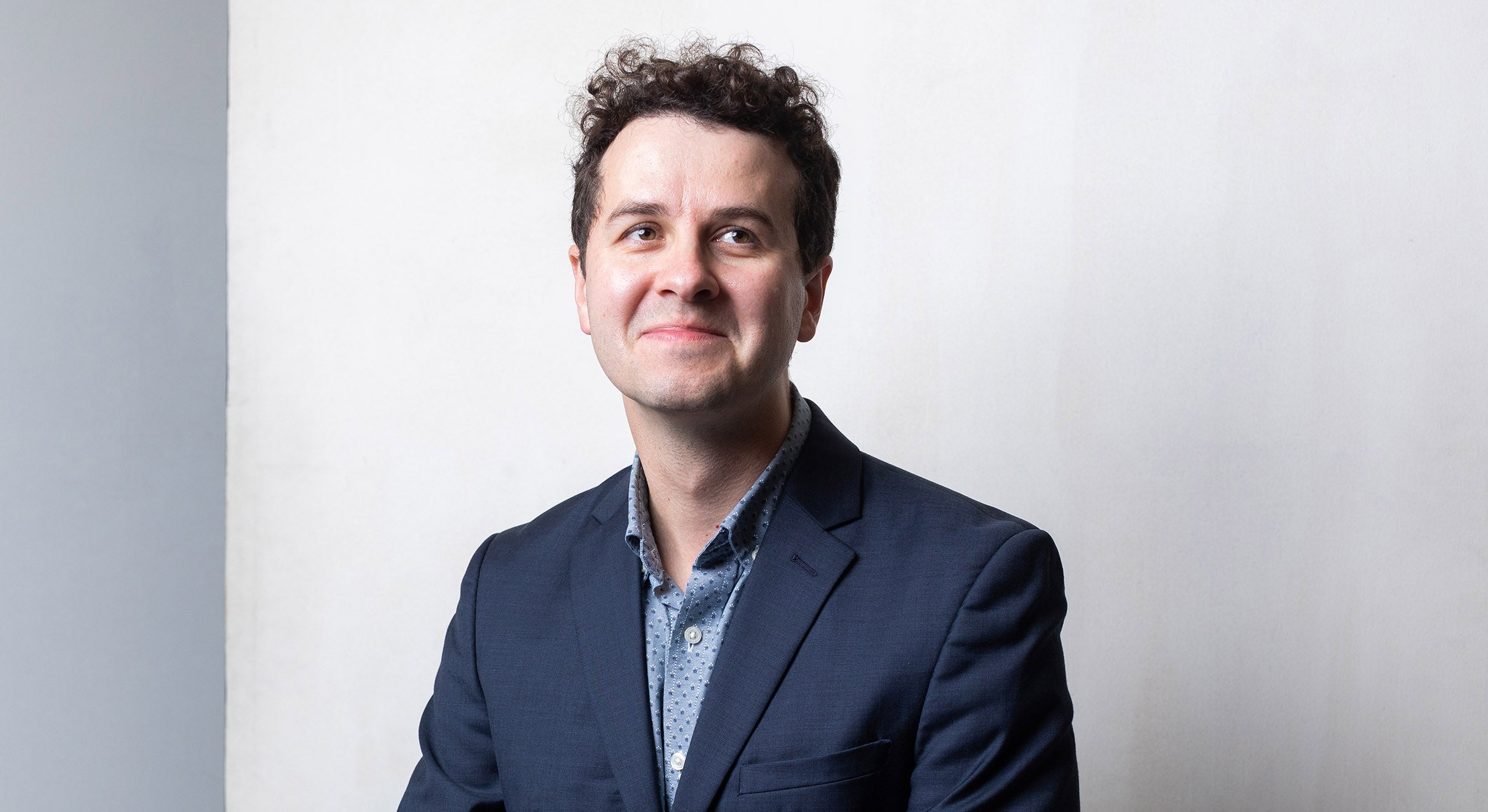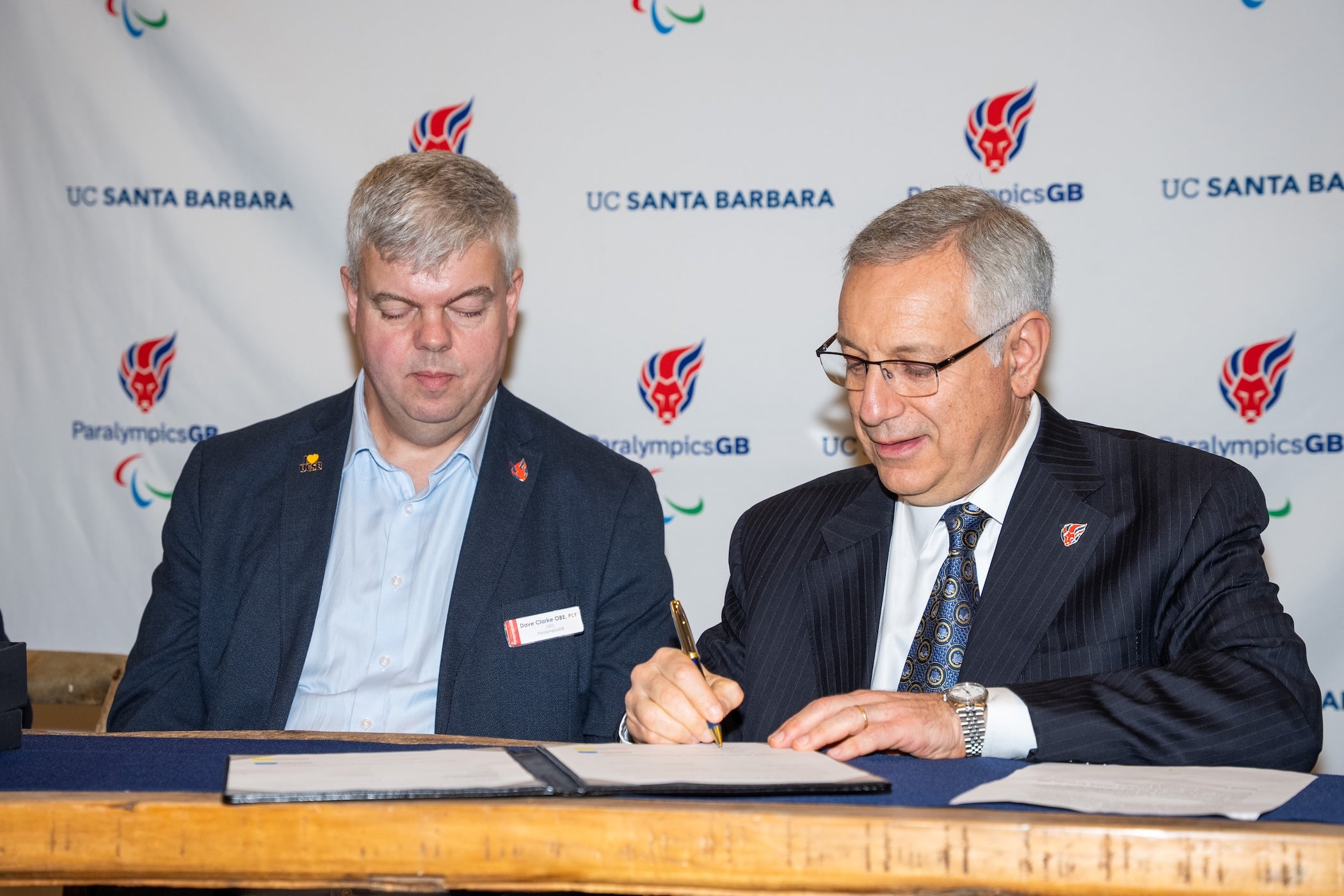National Medal Crowns Lifetime of Achievement for Innovative UCSB Chemistry Professor
Thomas C. Bruice, professor of chemistry and biochemistry at the University of California, Santa Barbara, will receive a major medal and a $15,000 prize from the National Academy of Sciences (NAS) on May 2 in Washington, D.C.
This national award in chemical sciences---which many consider to be the highest in the country for the field of chemistry---is awarded annually for innovative research that, in the broadest sense, contributes to better understanding of the natural sciences and to the benefit of humanity, according to the NAS. The award cites Bruice for "his leading role in the development of bioorganic chemistry, and especially for deep and lasting contributions to the understanding of enzyme mechanisms."
The pioneering biochemist has come a long way from his birth in 1925 in downtown Los Angeles to a 39-year-old single mother who had only a sixth grade education. Now, nearly 80 years old, he is still prolific, writing as many scientific articles as he did when he was 40---approximately one per month.
Bruice dropped out of high school in the 11th grade and joined the U.S. Navy, serving from 1943 to 1946. Then he entered the University of Southern California, earning his B.S. in 1950 and his Ph.D. in 1954. After a postdoctoral fellowship at UCLA, Bruice joined the faculty at Yale Medical School. He went on to faculty positions at the Johns Hopkins Medical School and then Cornell University.
Then, in 1964, Bruice joined the faculty at UCSB. Why the change? "I liked to surf," he said. The seaside campus was perfect for him. He continued to surf until age 70.
Bruice is a self-described loner. Of all his 560 scholarly articles only five included collaborating authors. "I always have been a loner," said Bruice. "I don't collaborate. When you are
like that you can almost do your work on the moon. I get my science by reading. We're all different."
The journal Bioorganic Chemistry dedicated an issue to Bruice on the occasion of his 75th birthday. The dedication states, "Tom is an extraordinary scientist. His productivity and creativity are legendary; his curiosity and intense interest in science continue unabated."
Besides pioneering the field of biochemistry, Bruice has contributed to at least 20 different areas of chemistry. His first grant was written at UCLA and submitted to the National Institutes of Health (NIH). According to Bruice the same grant has been renewed every year for the past 49 years. "That must be some kind of record," he said.
Bruice bemoans the current precipitous drop in government funding for basic research. For example, he said that the chance of getting a grant from NIH in recent years was 20 percent but that chance has now dropped to 10 percent. And, he is disappointed that new management at NIH has the philosophy that the individual scientist is not worth funding, that grants should go to members of research groups. "An Einstein or a Newton would have a tough time now," said Bruice. "The future of science is terrific, and collaboration among scientists is important, but I am sorry that the individual who can do it all is left out."
Awards from the NAS such as the one Bruice will receive next month are restricted to NAS members and foreign associates who are elected in recognition of their distinguished and continuing achievements in original research. Election to the NAS is considered one of the highest honors that can be accorded a scientist or engineer. UCSB has 23 NAS members, but Bruice is one of only two chemists in the group.
NAS is a private, non-profit society of distinguished scholars engaged in scientific and engineering research, dedicated to the furtherance of science and technology and to their use for the general welfare. Upon the authority of the charter granted to it by the Congress in 1863, the NAS has a mandate that requires it to advise the federal government on scientific and technical matters.



